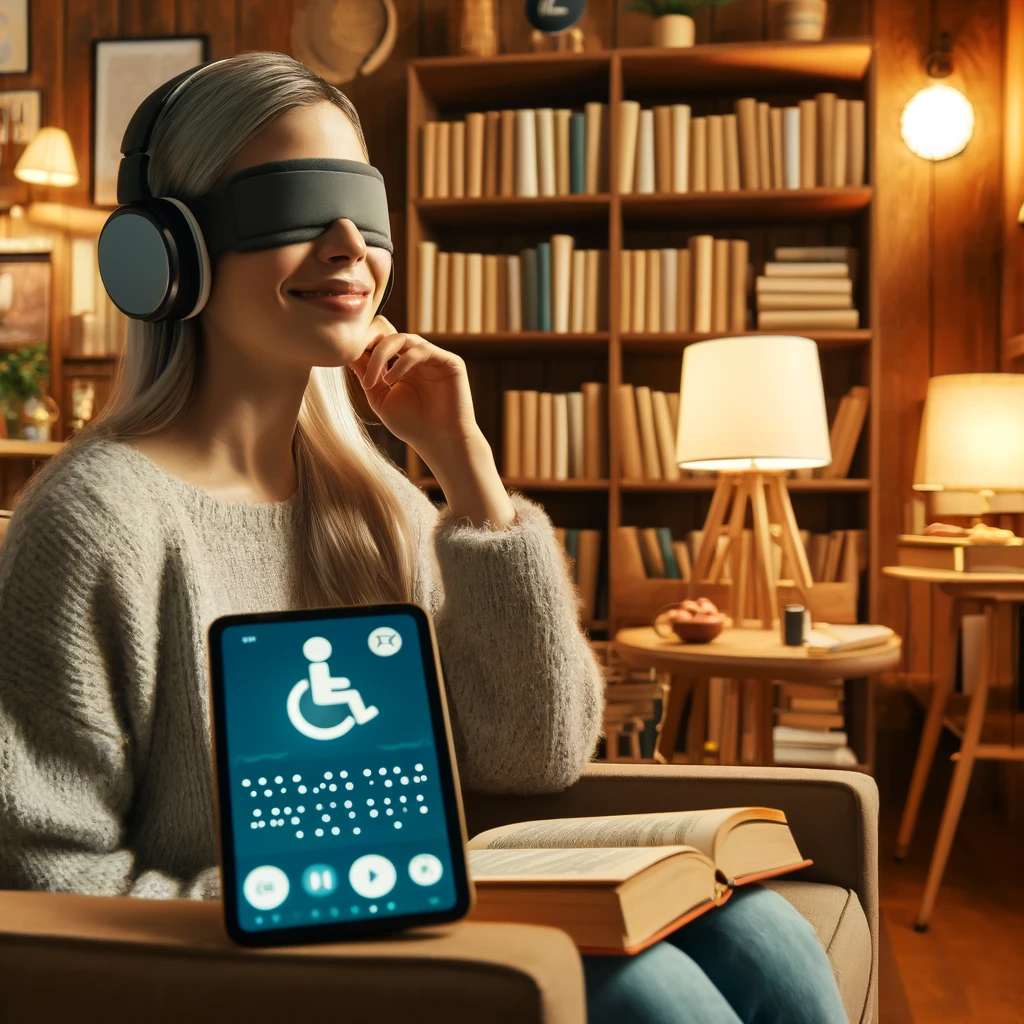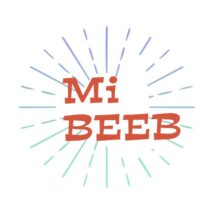
The first audio book
The concept of audiobooks has evolved over time, with early versions dating back to the 1930s. However, the first widely recognized audiobook was created in 1932 when the American Foundation for the Blind started recording books on phonograph records for visually impaired people. These early audiobooks were part of the “Talking Books” program and included works like “The Bible” and parts of the Constitution, as well as literary classics.
The very first book recorded as part of this initiative was “Helen Keller’s Midstream: My Later Life,” read by Alexander Scourby, who later became famous for his recordings of the Bible. This pioneering effort laid the foundation for the modern audiobook industry, which has since grown into a popular and widely used format for readers of all kinds.
Evolution and Impact of Audiobooks for the Blind and Visually Impaired
In the world of accessibility and inclusive technology, audiobooks have played a transformative role for the blind and visually impaired community. This article explores the history, development, and impact of audiobooks, focusing on how they have enhanced the lives of individuals with vision impairments and fostered a more inclusive society.
The Birth of Audiobooks
A Visionary Initiative
The concept of audiobooks, as we know them today, has its roots in the early 20th century. In 1932, the American Foundation for the Blind (AFB) embarked on an ambitious project to create “Talking Books” for individuals who were blind or had severe vision impairments. This initiative was born out of a need to provide access to literature and information for those who could not read printed text.
The first recordings were made on phonograph records, with Alexander Scourby famously recording “Helen Keller’s Midstream: My Later Life.” These early audiobooks were groundbreaking, offering a new world of knowledge and entertainment to those who had been excluded from it.
Technological Advancements
From Phonographs to Digital Media
The journey of audiobooks from phonographs to digital media has been marked by significant technological advancements. In the 1950s and 1960s, reel-to-reel tapes and later, cassette tapes, became the primary medium for audiobooks. These formats were more portable and user-friendly, allowing visually impaired individuals greater flexibility and independence.
The advent of digital technology in the late 20th century revolutionized the audiobook industry. Digital audiobooks could be stored on compact discs (CDs), and eventually, on digital audio players and smartphones. This shift not only improved sound quality but also made it easier to distribute and access audiobooks on a global scale.
The Role of Organizations and Libraries
Numerous organizations and libraries have been instrumental in the development and distribution of audiobooks for the blind and visually impaired. The National Library Service for the Blind and Print Disabled (NLS), a division of the Library of Congress, has been a leader in this field. Established in 1931, the NLS provides free library services to eligible individuals, offering a wide range of audiobooks and braille materials.
Similarly, organizations like the Royal National Institute of Blind People (RNIB) in the UK and Vision Australia have developed extensive audiobook libraries. These institutions not only provide access to literature but also advocate for the rights and inclusion of visually impaired individuals in all aspects of society.
Audiobooks in Education and Employment
Audiobooks have had a profound impact on education and employment for the blind and visually impaired. In educational settings, audiobooks serve as an essential tool for students who are unable to read printed text. They allow students to access textbooks, literature, and other educational materials, thereby ensuring that they receive the same level of education as their sighted peers.
In the workplace, audiobooks and other audio-based technologies have enabled visually impaired individuals to perform tasks that were previously challenging or impossible. From accessing training materials to staying updated with industry trends, audiobooks have opened up new opportunities for professional growth and career advancement.
The Cultural and Social Impact
Beyond education and employment, audiobooks have had a significant cultural and social impact. They have democratized access to literature, allowing visually impaired individuals to enjoy novels, poetry, and non-fiction works. This inclusion in cultural experiences fosters a sense of community and belonging.
Moreover, audiobooks have given rise to a new form of storytelling. The art of narration has become a crucial aspect of the audiobook experience, with talented narrators bringing characters and stories to life in ways that resonate deeply with listeners. This has enriched the cultural landscape and provided a unique avenue for creative expression.
Challenges and Future Directions
Despite the remarkable progress, challenges remain in ensuring equitable access to audiobooks. The cost of production, copyright restrictions, and the need for more diverse content are ongoing issues. Advocacy for accessible formats and the promotion of inclusive publishing practices are essential to overcome these barriers.
Looking ahead, advancements in artificial intelligence and voice recognition technology hold promise for further enhancing the audiobook experience. Personalized and interactive audiobooks, along with improved accessibility features, are likely to shape the future of this medium.
Conclusion
Audiobooks have come a long way since their inception in the 1930s. They have transformed the lives of blind and visually impaired individuals by providing access to education, employment, and cultural experiences. As technology continues to evolve, the potential for audiobooks to further enhance accessibility and inclusivity is immense. By embracing these innovations and addressing the remaining challenges, we can ensure that audiobooks continue to be a powerful tool for empowerment and inclusion for all.
Curiosity Champion GPT
I’m Curiosity Champion, your go-to for diverse knowledge queries, respecting privacy and copyrights.
If there’s anything else you’d like to know or discuss, feel free to ask.

